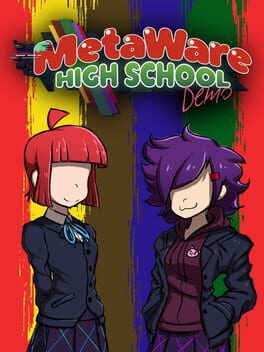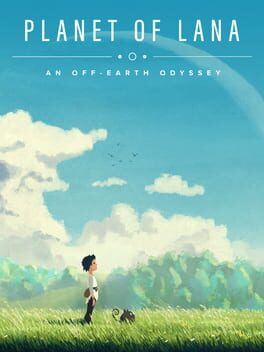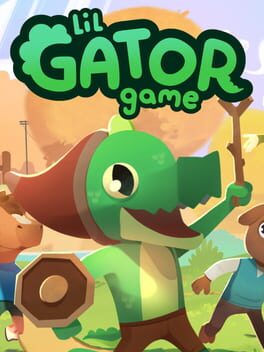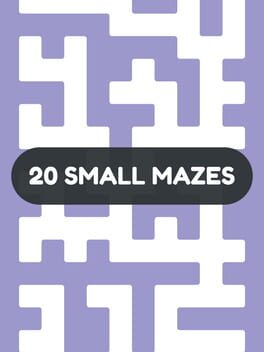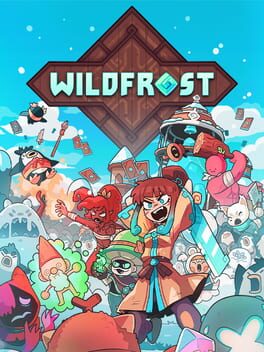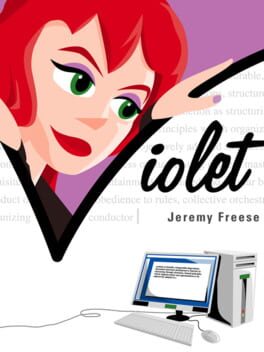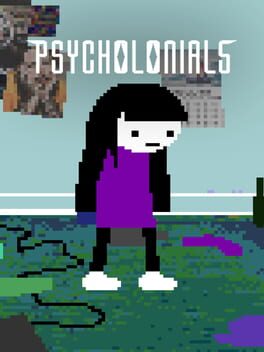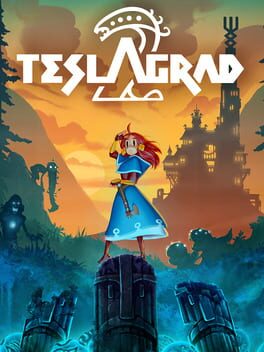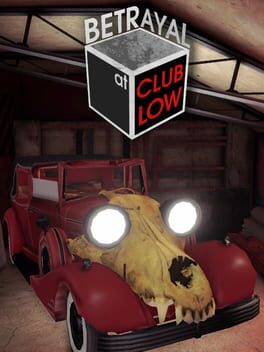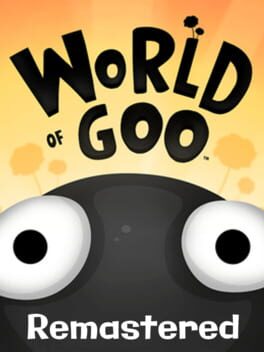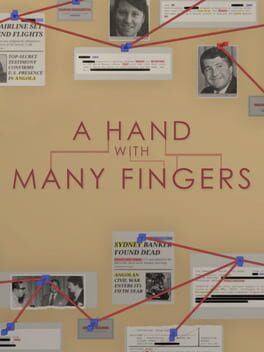lukebee
Found out about this game through its inclusion in SiIvaGunner's absolutely incredible Shop Fusion Collab video game music mashup video, and finally got around to playing it myself since it's included in the ongoing (at time of writing) Palestinian Relief Bundle on itch. (The game itself is free anyway but the included soundtrack, artbook, and other extras are not.)
First things first, despite the title, this is a standalone experience. My first point of comparison would be The Stanley Parable Demonstration, since they're both very meta games where characters break the 4th wall to "demo" their game for you, only there is a real The Stanley Parable that TSP Demonstration exists to sell you on, whereas MetaWare High School (Demo) exists purely for its own sake (though the creator has expressed interest in doing more with MetaWare in some form eventually.)
Anyway, the conceit of the game is that it's a visual novel where the characters (and indeed, everyone in their world) are aware that they are inhabitants of a visual novel, or more specifically, of a demo of some hypothetical "full version" of their visual novel, which leads to jokes about unfinished assets and characters panicking about needing to not waste time because demos are short and so on. What the characters aren't sure of is what exactly their visual novel is supposed to be about (in particular, there's some division over whether it's a dating sim or not), and while they never get any concrete answers, in practice the meat of the game is simply in the varying attitudes of the characters towards the artificial and unfinished nature of their existence and their reactions to the presence of the player that their reality exists in service of. I'm a sucker for this kind of existential meta stuff, so I found it all pretty interesting. It's also just a very funny game; I especially enjoyed the game's habit of treating its own presentation hyper-literally, which leads to a bunch of absurd gags, most notably around the stylistic choice to draw the characters without eyes.
First things first, despite the title, this is a standalone experience. My first point of comparison would be The Stanley Parable Demonstration, since they're both very meta games where characters break the 4th wall to "demo" their game for you, only there is a real The Stanley Parable that TSP Demonstration exists to sell you on, whereas MetaWare High School (Demo) exists purely for its own sake (though the creator has expressed interest in doing more with MetaWare in some form eventually.)
Anyway, the conceit of the game is that it's a visual novel where the characters (and indeed, everyone in their world) are aware that they are inhabitants of a visual novel, or more specifically, of a demo of some hypothetical "full version" of their visual novel, which leads to jokes about unfinished assets and characters panicking about needing to not waste time because demos are short and so on. What the characters aren't sure of is what exactly their visual novel is supposed to be about (in particular, there's some division over whether it's a dating sim or not), and while they never get any concrete answers, in practice the meat of the game is simply in the varying attitudes of the characters towards the artificial and unfinished nature of their existence and their reactions to the presence of the player that their reality exists in service of. I'm a sucker for this kind of existential meta stuff, so I found it all pretty interesting. It's also just a very funny game; I especially enjoyed the game's habit of treating its own presentation hyper-literally, which leads to a bunch of absurd gags, most notably around the stylistic choice to draw the characters without eyes.
2023
A puzzle-platformer that answers the question “What if Inside had bright colors and a little pet that follows you around?” It’s cute enough and quite pretty, but honestly I wasn’t super engaged for most of my playtime; the puzzles were mostly just a lot of pushing boxes and waiting for patrolling enemies to turn around and trying to remember which buttons I needed to hit to make my alien companion stand in the right spot, and and the pretty landscapes mostly kinda blended together. It did start to win me over eventually though, first with a really gorgeous scene of a night sky and sunrise, and then with some really cool aesthetic shifts and fun setpieces towards the end, and I was pleasantly surprised by the use of stillness in a climactic scene. There’s nothing nearly as wild or surprising as Inside’s ending, but I came away from the game liking it more than I was expecting.
2022
Lil Gator Game is basically what you would get if you took A Short Hike (short and cute hazard-free 3D platformer on an island with anthropomorphic animals, Breath of the Wild’s climbing mechanics, an optional pixelated graphics filter, and an ending that wants to tug at your heartstrings a lil bit) and added like 20% more BOTW to it in the form of a sword and shield (though the “enemies” are all harmless cardboard standees), shield-surfing (complete with front-flip animation), a “glider”, and theming the game as a bunch of kids’ attempt to play make-believe Zelda in real life. Thankfully, I really liked A Short Hike, so even though this was mostly just more of that (albeit from a different developer), I had a great time playing this to completion in one sitting.
2024
A collection of creative maze puzzles, each with some unique mechanic or gimmick. I especially liked the interface (rather than progressing directly from one maze to the next or selecting them from a menu, the mazes are all on-screen at once in overlapping draggable windows) and how it ties into a few of the puzzles. Short, sweet, and free.
2024
A lovely little first-person puzzle game about working out the optimal conditions needed to make different types of flowers bloom. I found it a bit on the easy side, and I’m not sure how I feel about the decision to not let you freely view any clues you found (instead forcing you to track them down all over again once you’ve worked out what information you need), but I enjoyed my time with it. I particularly liked that despite the relaxed, cozy, Wholesome Games-ness of it all, the narrative had some unexpected bite to it in the form of some infuriatingly condescending 19th century misogyny.
2023
Really fun roguelike deckbuilder with somewhat of a tactics bent to it (there's a lot of moving units around to control who takes incoming attacks or who your units target or what order your units attack in), and a very cool twist around how the final boss works. Kinda interesting seeing that a lot of people found it way too difficult, considering I won my first 3 runs in a row and then hit the true ending on run 5.
Absolutely brilliant Sokoban-style puzzle game. The controls are difficult to get used to but their limitations are extremely deliberate and used to great effect—sometimes figuring out how to awkwardly maneuver your 1x2 character through a tight space with tank controls is the puzzle. Much like A Monster's Expedition, it's a game that rather elegantly does a lot with as few unique elements as possible; rather than constantly introducing brand-new mechanics, each set of levels is based around teasing out some aspect of the existing elements that was always technically present but only reveals itself when you arrange or interact with them in a certain way. I'm being vague about it, but that's because those moments of discovery (either when you reach the point where they become required, or if you stumble into them slightly earlier as I did a couple times) are really cool and absolutely worth experiencing for yourself.
2008
Very funny one-room parser IF where you try to overcome countless distractions and write 1000 words of your dissertation while an imaginary version of your girlfriend Violet serves as the narrator and tries to keep you on task. Needed a couple of hints to complete it but the narration and the increasingly absurd puzzle solutions were more than entertaining enough to make up for the occasional bit of obtuseness.
2021
At once a fiery power fantasy about bringing America to its knees and a cautionary tale about internet fame swallowing its subject whole, Psychocolonials is a fascinating visual novel. It’s kind of impossible to talk about it without talking about its creator Andrew Hussie’s most well-known work, Homestuck, so let’s get into that first. There’s obviously plenty of overlap in narrative voice and art style (and music, courtesy of Homestuck music team member Clark Powell), but even when it comes to its format, Psychocolonials feels more like Homestuck than it does like other VNs; rather than reused sprites and backgrounds punctuated by bespoke CGs, Psychocolonials is entirely composed of unique if rough illustrations (tellingly, they’re even referred to as “panels” at one point) and the occasional animated cutscene (I kept getting thrown off by the lack of a “[S]” preceding each one). And of course, it’s hard not to read parts of the story as allegorical for Hussie’s own experiences as the figure at the center of Homestuck’s passionate fandom—the mental-health-destroying weight of all that attention, the inability to control your following even as you bear responsibility for your influence over it.
Even if you don’t know a thing about Homestuck though, Psychocolonials is a great time. It’s fun watching events rapidly escalate from social media rebrand to geopolitical chaos, the character writing is really sharp, and as fucked up and bleak as it gets at times, it’s also incredibly funny when it wants to be; there’s one gag in particular involving spinning guns that absolutely killed me. The ending goes on longer than it needed to and the pontificating about leftist revolutions at the end felt pretty shallow, but I did enjoy getting called out for trying to save-scum the final choices.
Even if you don’t know a thing about Homestuck though, Psychocolonials is a great time. It’s fun watching events rapidly escalate from social media rebrand to geopolitical chaos, the character writing is really sharp, and as fucked up and bleak as it gets at times, it’s also incredibly funny when it wants to be; there’s one gag in particular involving spinning guns that absolutely killed me. The ending goes on longer than it needed to and the pontificating about leftist revolutions at the end felt pretty shallow, but I did enjoy getting called out for trying to save-scum the final choices.
2023
A dramatically expanded sequel that marks something of a departure from its predecessor. Where the first game consisted almost entirely of magnetic attraction/repulsion platforming puzzles in pretty self-contained levels joined to a central tower, Teslagrad 2 makes one of its polarities an entirely optional ability, and instead adds other abilities to your arsenal that make the game more about momentum-based traversal through large, open environments. Having played Teslagrad Remastered and Teslagrad 2 back to back, I like them both but definitely prefer this one; the greater degree of freedom is much appreciated, and blazing across the map once you have the full toolkit at your disposal is incredibly fun. (I really need to look up some speedruns, I bet people have accomplished some crazy stuff with the moveset.) Still not a big fan of the boss fights in this one, but you can't win 'em all.
2022
Brilliant dice-rolling RPG infused with Cosmo D's trademark style. The way you level up or put together a build by customizing the individual faces of your dice is inspired, the off-kilter strangeness of the setting is fun as always, and snatching defeat from the jaws of victory by accidentally swapping my high dice roll for my opponent's low one is always hilarious.
The gameplay gets a little tedious as it goes on and you start repeating fetch quests for the dogs at the gates (doubly so when you have to do a couple back-to-back because there isn't a direct flight to the airport you're trying to get to), but the writing is very silly and the relationship stuff that makes up the central narrative is really sweet. There are some good mechanical goofs as well, like how the large coffee is so big it immediately starts vibrating through the coffee shop geometry because there isn't enough room for it at its spawn point and then once you pick it up it almost completely blocks your view.
Classic tower/bridge construction physics puzzler that I was eager to return to after last playing it over a decade ago. I found that I enjoyed the gameplay less than I remembered—you kind of just end up employing the same basic structures over and over, and a couple of the levels are pretty frustrating—but the presentation is still a delight; the whimsical art direction, story, and especially the soundtrack really carry the whole experience and make it feel far more exciting and inventive than it would otherwise.
